Teeth whitening is a popular cosmetic dentistry option for many. According to the National Consumer Survey, 37 million Americans used teeth whiteners in 2024. If you suffer from stained teeth, you can now get effective teeth whiteners from your local drug store. Some offer quick results and will improve your health and looks. Nonetheless, there are various tooth whitening methods to try out.
Contents
- 1. What should I know before whitening my teeth?
- 2. Teeth whitening procedures only whiten your natural teeth.
- 3. Results are almost instant.
- 4. Teeth whitening should be done professionally.
- 5. Teeth whitening is non-permanent
- What are the different teeth whitening methods?
- How will I benefit from teeth whitening?
1. What should I know before whitening my teeth?
Teeth whitening bleaches your teeth to lighten the existing shade. Before the procedure, the dentist will examine your teeth to ascertain that they are healthy for the procedure. You can also acquire Fleeck kits and bleach your teeth at home- without visiting the dentist. Sounds great? Well, there are a few things to know before acquiring teeth whiteners.
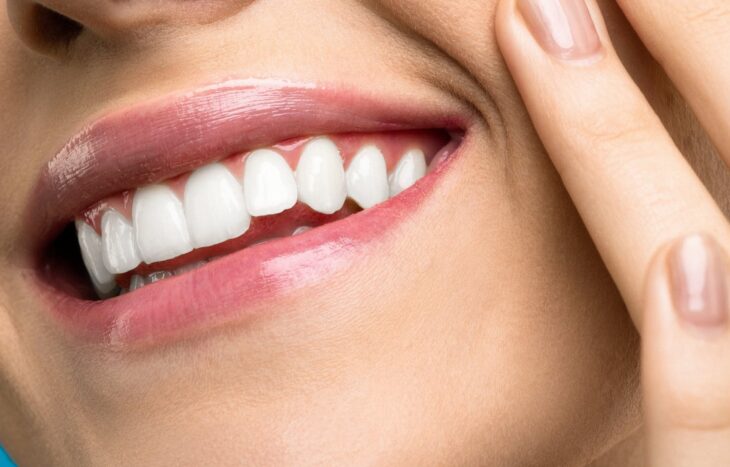
Source: Medium
2. Teeth whitening procedures only whiten your natural teeth.
Teeth whitening methods don’t work on dentures, crowns fillings or veneers. It only whitens your real teeth, and the rest will remain unchanged. However, you can change them after treatment to match the new brighter look.
3. Results are almost instant.
Teeth whitening takes effect almost immediately. In case of surgery, this takes about one hour. But, you take home some kits for a longer effect. For a better response, have your teeth cleaned professionally before the whitening procedure, eliminating the stains.
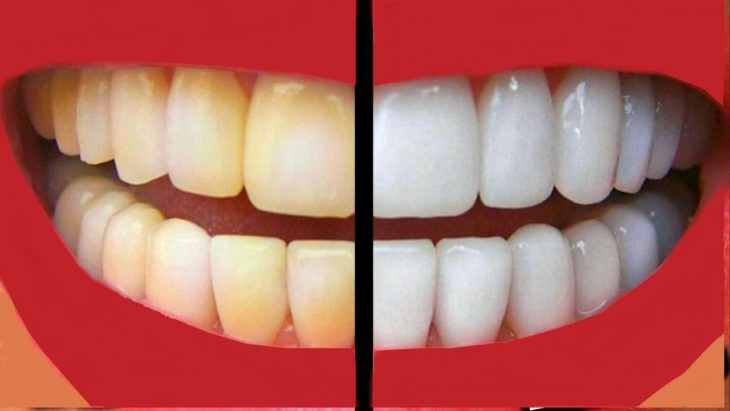
Source: YouTube
4. Teeth whitening should be done professionally.
Teeth whitening can result in sensitivity no matter the method used. This is particularly true if you suffer from sensitive teeth. A licensed dentist or a therapist should perform the procedure. The specialist understands the right products and materials to use for a successful procedure. Attempting teeth whitening at home might seem convenient, but it’s a risky endeavor without professional guidance. A dentist can tailor the whitening procedure to suit your specific needs, minimizing potential discomfort and ensuring the health of your gums and teeth. They can also provide valuable advice on maintaining your dazzling smile post-treatment. For those seeking expert care, considering teeth whitening Harley Street ensures a safe and effective transformation, leaving you with a brilliant smile, minus the worry of adverse effects.
5. Teeth whitening is non-permanent
Teeth whitening methods offer excellent results, but this lasts for about three years. This varies from one patient to another, though! If you smoke or drink, this may be shorter.
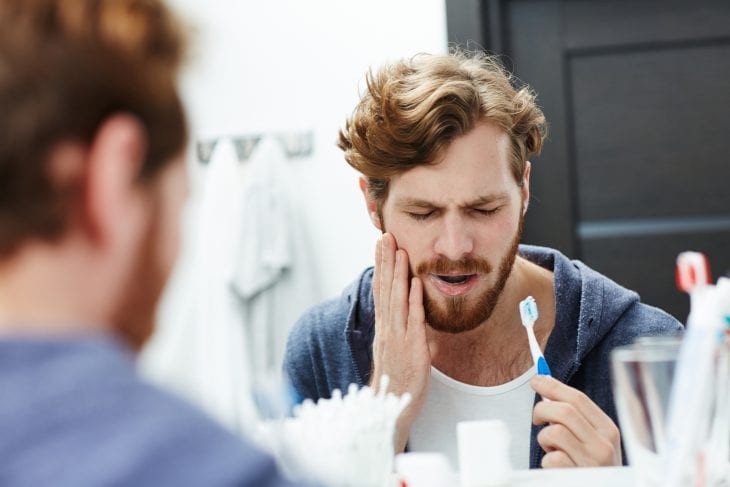
Source: irishexaminer.com
What are the different teeth whitening methods?
There are various teeth whitening methods. If your dentist has examined you and qualified you for the procedure, it’s not time to choose what works for you. The common methods range from toothpaste, strips, whitening rinses, tray-based whiteners and more. All offer varying results and may take days to weeks to show visible results.
1. Whitening strips
These are thin invisible strips that have been coated with peroxide-whitening gel. You apply them twice daily for 14 days and will see results in a few days, but will enjoy final results after about four months. Whitening strips are common in most drug stores, and you can get them with ease.
They get rid of the surface stains and also penetrate the tooth enamel to alleviate deep intrinsic stains within the tooth. What’s more? They are easy to use, and many work excellently. However, they are costly and take long to proffer results. The results also depend on the levels of peroxide contained.
Are teeth whitening strips safe? They are safe to use but should avoid strips containing chlorine dioxide. This is an acid that whitens your teeth but eats away the surface of your enamel, thus destroying it.
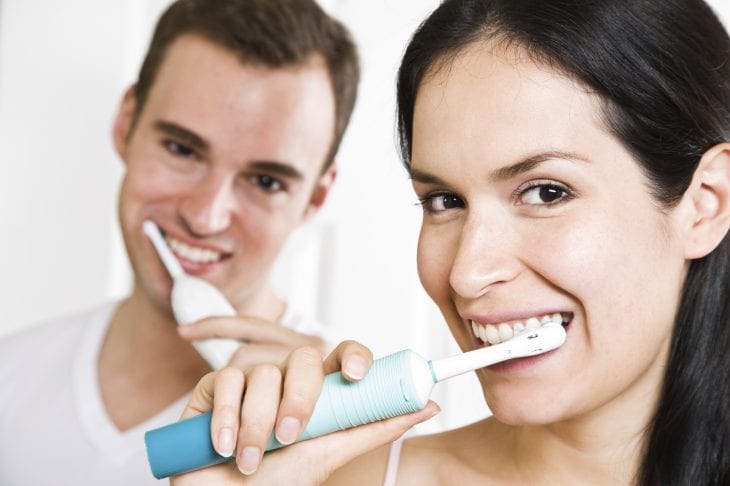
Source: Cheapelectrictoothbrushz.com
2. Teeth whitening toothpaste
Tooth whitening toothpaste is different from your regular toothpaste. It’s designed to brighten your smile and contain mild abrasives that scrub your tooth’s surface to remove surface stains. Although many people are concerned about its abrasiveness, tooth whitening toothpaste won’t affect your enamel. The abrasives are not only mild but also contain additional polishing agents and chemicals. These can effectively deal with stains without hurting your teeth.
3. In-office bleaching
In-office teeth whitening is quick and offers instant results. The procedure involves applying the whitening product directly to your teeth and combining it with a special light or laser. Before the procedure, the dentist will examine your teeth to assess the staining and the cause of discoloration.
Stains from eternal sources are easy to bleach. But internal ones may be attached to the inorganic part of the tooth, hence difficult to bleach. You’ll get dramatic results with this procedure but may need more appointments with the dentist.

Source: Greatist
4. Tray-based teeth whiteners
Tray-based methods work by filling a tray like a mouth-guard with a gel solution. You then wear the tray for a few hours during the day and throughout the night for four weeks, or longer depending on the level of discoloration. The trays are effective but take longer than in-office bleaching. There are two distinct types of teeth whitening trays; these are;
- Kits from the dentist
- Over the counter trays
Teeth whitening kits from the dentist are highly effective and contain a stronger peroxide bleaching agent. They are also custom-made to fit your teeth, thus minimizing the risk of gum irritation. With Covid-19 pandemic being still quite active, especially in some regions of the world, if you do not feel comfortable going to the dentist, you could get these online from sportingsmiles. Do not worry about the fitment since these are universal and adjustable, so they will definitely fit your teeth like if those were created by your dentist.
5. Whitening rinses
Teeth whitening rinses freshen your breath and mitigate dental plaque and gum disease. Some contain hydrogen peroxide and other teeth whitening agents to bleach your teeth for a brighter look. For best results, you swish the rinse in your mouth twice daily before brushing. The whitening agent is in contact with your teeth for a short period, making them less effective. It may take about 12 weeks to see visible results.
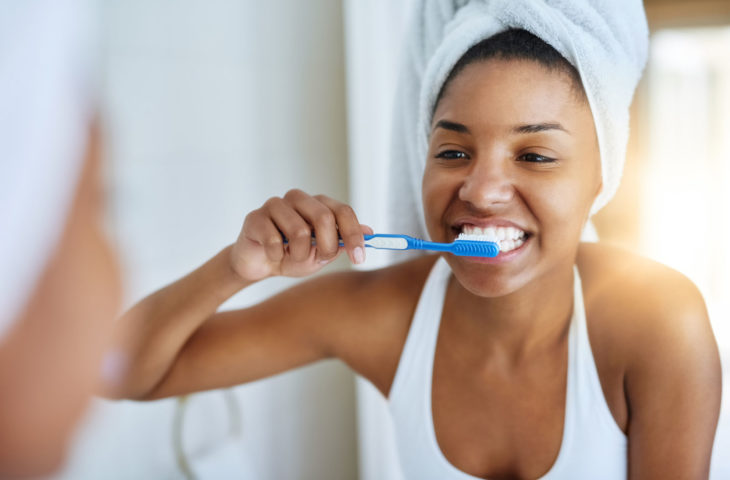
Source: Medium
How will I benefit from teeth whitening?
We all wish to have that beautiful pearly smile but live in a world full of teeth-staining factors. These include medications, coffee, soda, food sources, wines and more. However, undergoing teeth whitening can transform your looks for the better.
Whitening your teeth enhances your physical appearance and health. Also, it boosts your confidence by removing stains and brightening your smile. And this improves your self-esteem, which enhances your overall personality. That’s not all, though! Teeth whitening helps diagnose serious dental health issues, which minimize the risk of future oral problems.
The procedure will also avert damages to your teeth. Enamel tissue absorbs the stains on your teeth, and whitening products flow through the enamel to deal with any stains present. Lastly, teeth whitening is an anti-ageing procedure that doesn’t involve needles. It’s easy and will leave you looking younger with brighter, beautiful teeth.
The bottom line
Before going for any teeth whitening procedure, discuss this with your dentist. The professional will examine your teeth to determine the most suitable whitening method. But, don’t neglect your daily oral routine, brush, floss and have regular dental checkups for healthier teeth and gums.
